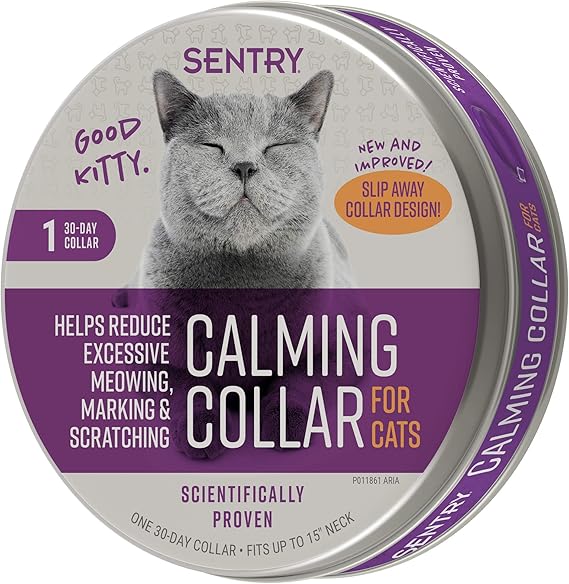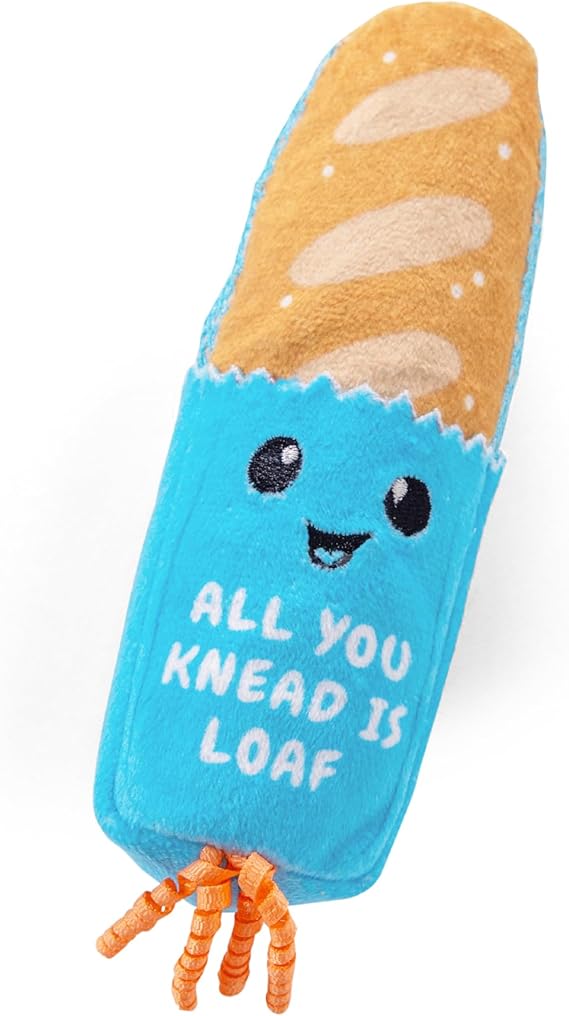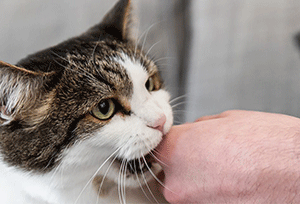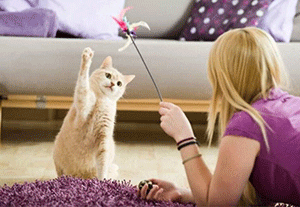Cats are affectionate and playful pets. However, biting remains one of the common problems among most cat owners. Whether it's playful nibbles or aggressive chewing, there can be many reasons why cats bite, and how to address these reasons is vital to avoiding future problems. Here's a complete guide to stopping your cat from nipping continually.
Other Topics You Might Like
Helpful Products You Might Like

SENTRY PET Care Sentry Calming Collar for Cats

Catstages Loaf Kicker Catnip Toy and Dental Toy for Cats
Bodhi New Bitter No Chew & Hot Spot Spray
"(Paid Links)" 
Why Do Cat Bite
It is essential to know the reasons triggering the cat to bite before devising any measures:

Curiosity
Kittens and juvenile cats seemingly have an oral fixation, where everything in their surroundings has to be put in their mouths. Observe the regular nips when playing with people or other animals.
Predatory Nature
Cats are instinctual last hunters, and a bite could be the nature of a hunter. It is particularly true when the cat is bored and needs something to do.
Protection
When scared, trapped or threatened, a cat may bite as a defense. Knowing your cat's body language will help decrease the aggression because you will know when a cat is stressed.
Hyperactivity
It is not the same for every cat. As the cats are being petted, what was initially a soothing activity could turn into being bitten when a cat is overhandled.
Medical Issues
If your cat suddenly starts biting more than usual, it might be due to pain or discomfort.
Some tips To Stop Your Cat from Biting
Follow these recommendations to help reduce the biting tendency:
Redirect Playtime
Use Toys

Rather than using hands to play with a cat, which provokes the kitten's biting instincts, getting a collection of toys that serve the purpose will help as well. Wand toys, feather toys, and laser pointers are good alternatives that do not involve the use of fingers.
Interactive Play
Engage your cat at play at regular intervals, using toys that imitate prey. This curbs the want to bite and ensures that no energy is left in them so the desire does not emerge.
Know the Signs of Overstimulation
Observe the Signs
Observe your cat's body language to avoid getting bitten. Some common signs include tail twitching, flattening of ears, or a death stare. Stop petting the cat to avoid a bite if that captures your attention.
Take Breaks
For instance, if your cat gets overstimulated, transition out of that activity with short breaks, stimulating every aspect of your interaction with the cat. These allow for the reset period and give time so that the petting or playing can continue to make them feel like they are having more fun.
Create A Safe Space
Provide a Retreat
Each feline tends to get overwhelmed occasionally. As such, a safe space to which your cat may resort should be guaranteed. This could include a bed, a platform, or a room. Going to a secure space helps your cat cool off and removes excess tension.

Minimize Stressors
Some stressors, such as noisy distractions or other animals, may lead to anxiety. One important reason to minimize stressors is to make the cat more comfortable.
Positive Reinforcement
Reward Good Behavior
Each time, while playing with the cat, see to it that it does not engage in rough play, call for his attention and give him treats or cuddle with it. It reinforces positive behavior, which encourages them to repeat it again.
Ignore Bad Behavior
Withdraw your attention from the cat when it bites you while playing. As a result, the invaded fun is their head for a moment after letting them bite you.
Address Medical Concerns
Veterinary Check-Up
If your cat has worked on the act of biting and this is new to her, you may wish to take her to the pet doctor for medical advice. They know what the pet is suffering from that is normally believed or thought of as abnormal pet pain.
When to Seek Professional Help
When to Make the Decision to Go to a Professional Although you've pursued these techniques and your cat is still aggressively biting, it is wise to consult an animal behaviorist or veterinarian. They are best equipped to address your concerns concerning your cat's behavior and offer appropriate training methods.
